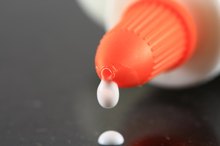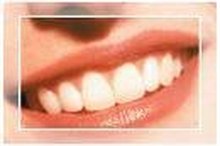What does fact checked mean?
At Healthfully, we strive to deliver objective content that is accurate and up-to-date. Our team periodically reviews articles in order to ensure content quality. The sources cited below consist of evidence from peer-reviewed journals, prominent medical organizations, academic associations, and government data.
- MayoClinic.com: Dry Mouth
- National Institute of Dental and Craniofacial Research: Burning Mouth Syndrome
The information contained on this site is for informational purposes only, and should not be used as a substitute for the advice of a professional health care provider. Please check with the appropriate physician regarding health questions and concerns. Although we strive to deliver accurate and up-to-date information, no guarantee to that effect is made.
Dry Mouth From False Teeth
False teeth, or dentures, can make it easier to chew your food and eat a wider variety of nutritious foods. They can also improve appearance if you have suffered tooth loss due to gum disease or other dental health problem. But people who wear dentures may also suffer from dry mouth, which can be uncomfortable and affect your health – though it's not necessarily caused by your dentures.
Wearing Dentures
Dentures are a set of false teeth that are used to replace natural teeth that have been lost. You may need a complete set of false teeth, or a partial set if you've only lost some of your teeth. Dentures may be permanent, meaning that they're implanted or attached in the mouth and don't need to be affixed each day. Other dentures can be removed, and may be attached to the gums with adhesive for a better fit.
- Dentures are a set of false teeth that are used to replace natural teeth that have been lost.
- Other dentures can be removed, and may be attached to the gums with adhesive for a better fit.
Dry Mouth and Dentures
The Difference Between Porcelain Teeth & Acrylic Teeth
Learn More
Since dentures are merely replacing your mouth's natural set of teeth and some of the tissues that surround them, it's tough to get a completely perfect fit, says Cleveland Clinic. Your mouth and gums will change over time, making the dentures fit differently. But when you first wear your dentures, it's actually more likely that you'll experience too much saliva rather than dry mouth. Dentures that don't fit properly can also cause a condition called burning mouth syndrome, which the National Institute of Dental and Craniofacial Research says often occurs with dry mouth 2.
- Since dentures are merely replacing your mouth's natural set of teeth and some of the tissues that surround them, it's tough to get a completely perfect fit, says Cleveland Clinic.
- But when you first wear your dentures, it's actually more likely that you'll experience too much saliva rather than dry mouth.
Other Causes of Dry Mouth
Dry mouth, known as xerostomia, can be caused by a number of different factors other than wearing dentures. Smoking or using tobacco products can dry out the mouth, says Mayoclinic.com 1. And taking many medications, as many older people do, can also cause dry mouth as a side effect. Damage to the nerves, being older in age and having another health problem -- such as diabetes -- can also cause dry mouth.
- Dry mouth, known as xerostomia, can be caused by a number of different factors other than wearing dentures.
- Damage to the nerves, being older in age and having another health problem -- such as diabetes -- can also cause dry mouth.
Problems With Dry Mouth
Pros & Cons of Valplast
Learn More
Dry mouth is more than uncomfortable -- it can actually pose risks to oral health, says Mayoclinic.com 1. If your mouth isn't producing as much saliva as it should, bacteria may grow rapidly and lead to tooth decay. Chewing, swallowing, tasting and digesting food also gets tougher when your mouth is too dry.
Coping With Dry Mouth
If you wear dentures, visit your dentist to make sure that they fit you properly. You can also check with your doctor to see if any of your medications are causing dry mouth as a side effect, and ask what can be done to manage it. Mayoclinic.com suggests sucking on a sugar-free hard candy, avoiding tobacco use and drinking water throughout the day as a few ways to help you moisten your mouth 1.
Related Articles
References
Writer Bio
Diana Rodriguez is a Louisville, Kentucky-based full-time freelance writer who specializes in health and real-estate writing. Since 2008 her numerous articles have appeared on various news and health websites. She also specializes in custom Web content for a variety of businesses. She has degrees in journalism and French from Miami University of Ohio.









